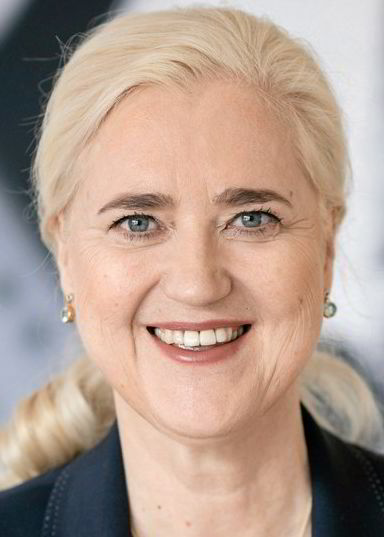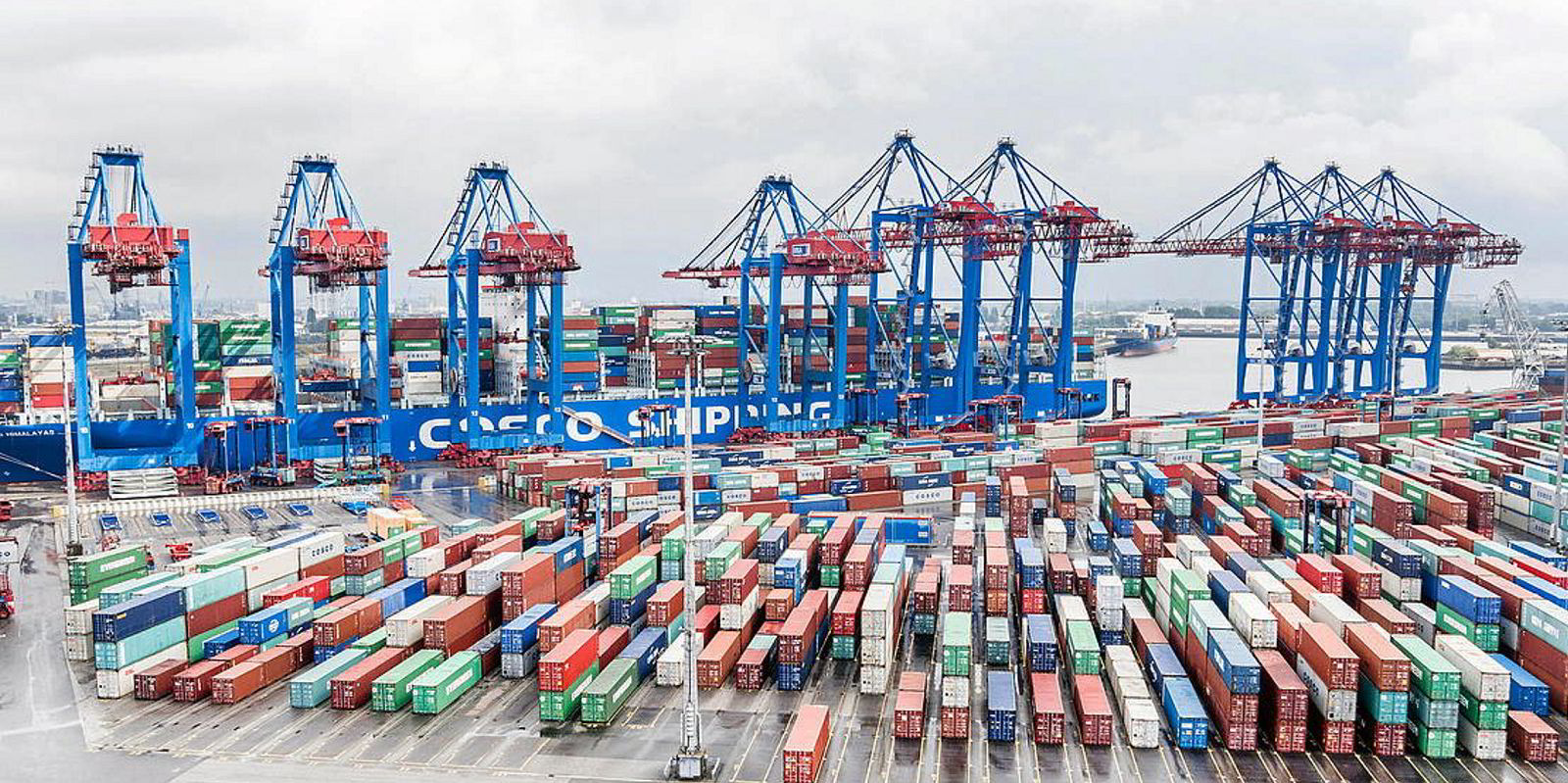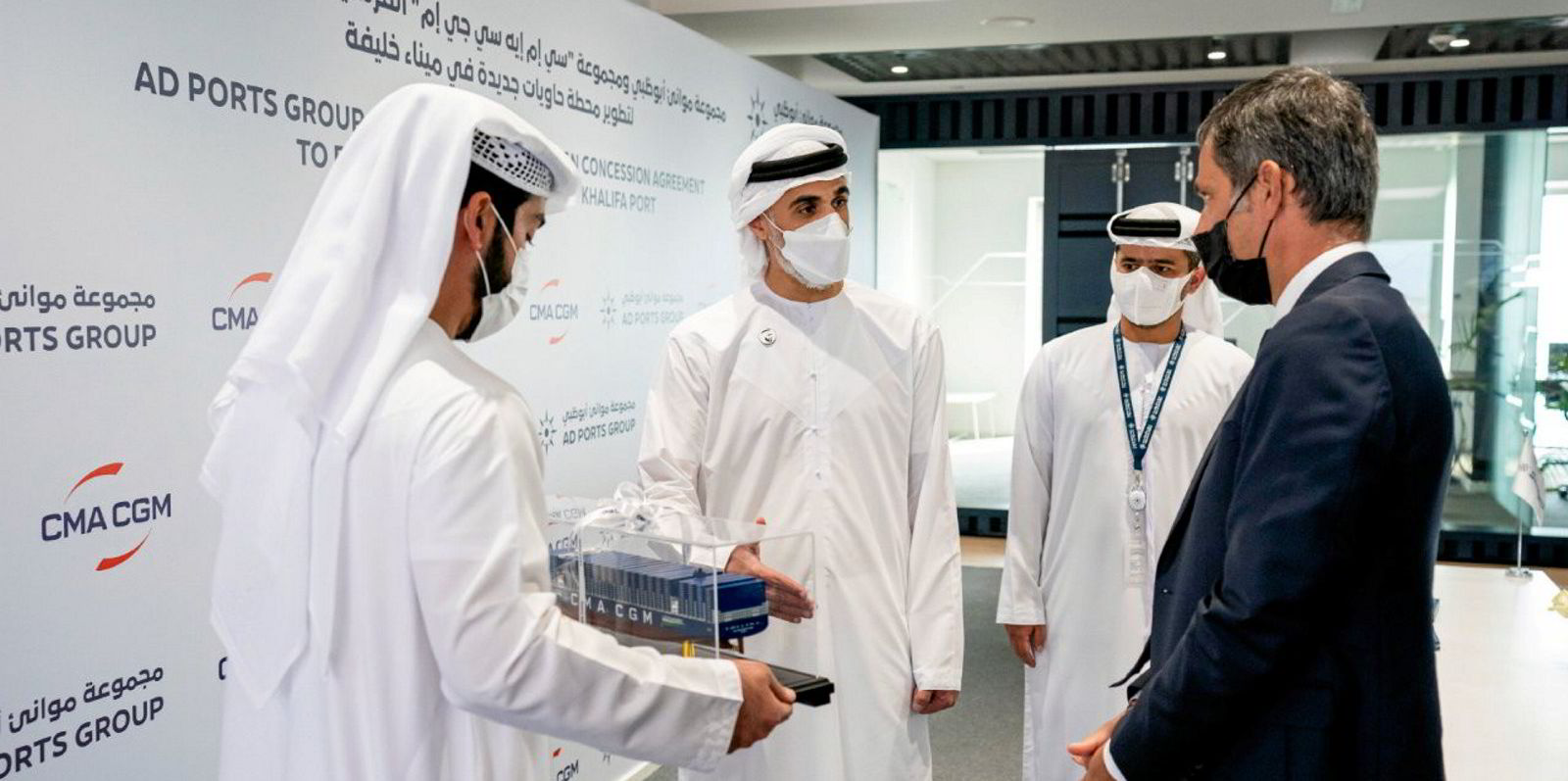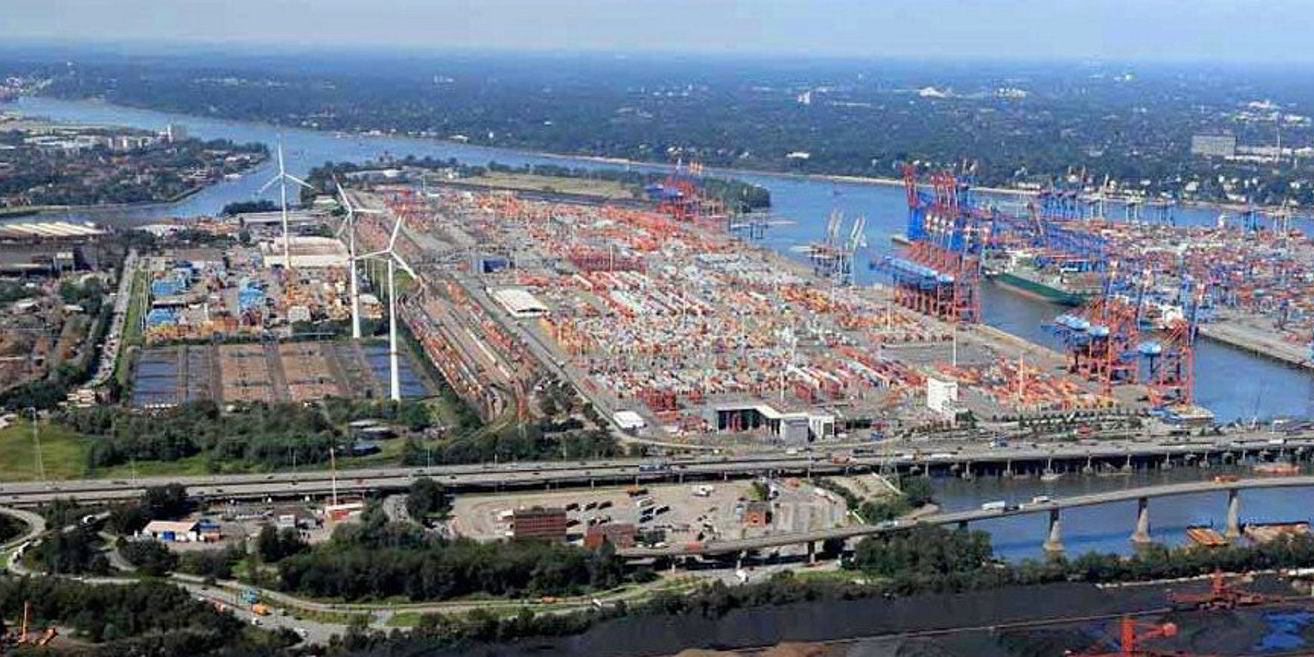Hapag-Lloyd has become the latest liner company to make a strategic investment in German container port terminals.
The German company will acquire a 30% stake in Container Terminal Wilhelmshaven and 50% of the shares of Rail Terminal Wilhelmshaven at JadeWeserPort.
Terminal operator Eurogate continues to hold the remaining shares. The parties did not disclose the price of the deal.
The transaction is expected to close within a few months, subject to approval by the antitrust authorities.
The investment by Hapag-Lloyd could be strategic, in that it will secure terminal operations in Germany capable of handling the company's largest containerships, according to Alphaliner.
Hapag-Lloyd already holds a 25.1% stake in Container Terminal Altenwerder in Hamburg.
But that terminal is accessible only for ships of up to 16,000 teu due to air draft restrictions.

It would not be able to accommodate Hapag-Lloyd's largest ships of 19,870 teu, or its upcoming series of 12 23,660-teu Asia-Europe flagships, or any other vessels operated by members of THE Alliance, Alphaliner says.
The play by Hapag-Lloyd comes days after the Cosco Group unveiled plans to increase its stake in a rival German terminal.
Port operator Cosco Shipping Ports announced on 22 September that it would acquire 35% of Hamburg's Container Terminal Tollerort (CTT).
CTT is an important logistics hub in Europe with a good location, water depth and connections to the hinterland, said Zhang Dayu, managing director of Cosco Shipping Ports.
He added that the port has "very promising prospects and great potential of development in the future".
CTT, which is run by Hamburger Hafen und Logistik (HHLA), is capable of handling the largest vessels of up to 24,000 teu.
However, it is used mainly by Ocean Alliance members CMA CGM, Evergreen, Cosco and OOCL.
Angela Titzrath, chairwoman of HHLA’s executive board, said the company has been committed to developing business opportunities with China for 40 years.
She said shipping is undergoing drastic changes, and long-term stable relationships with customers are important.






